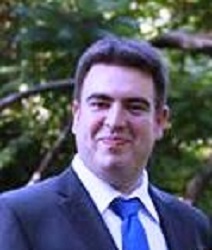General information
All students activities are rated according to the European Credit Transfer System (ECTS), (European Credit Transfer and Accumulation System, ECTS), so that each semester is awarded 30 ECTS credits. Master applied studies last two years or four semesters and are awarded 120 ECTS points. The studies were conducted in the form of class-based teaching (face-to-face) in Serbian. The study program is realized within the field of technical and technological sciences, the field of electrical and computer engineering.
Qualification
Upon completion of the master applied studies, the student acquires the title of engineer of electrical and computer engineering-master appl.. According to the National Qualifications Framework of the Republic of Serbia (NOKS), the completion of master applied studies is achieved at the seventh level, sub-level one (level 7.1). The requirement for acquiring this level is previously achieved level 6.1 ( basic applied studies of 180 ECTS points ).
Teaching and exams
Teaching is performed using one-semester courses. Student activities during the semester (pre-examination obligations), such as colloquiums, seminar work and homework, are scored. The ratio of the number of points earned in pre-examination and exams is determined for each subject individually, with pre-examination obligations participating with at least 30 and up to 70 points. The final exams are placed in the School within the appropriate exam terms, which are: January, February, June, September and October. By completing preliminary exams and taking the exam, a student can earn a maximum of 100 points, with a score of at least 51 points for a grade of 6, a score of 61 points for a grade of 7, a score of at least 71 points for a grade of 8, a score of at least 81 points for a grade of 9 and a score of at least 91 points for a grade of 10.
Goals and outcomes
The aim of the study program Electrical Engineering is to train students for the construction, installation, testing, exploitation and design of devices, subsystems and systems in the field of electrical engineering. The goals of the study program Electrical Engineering:
- to train professionals in the fields of electronics, telecommunications, automation and energy for the needs of production enterprises, in development, production and maintenance; institutions of economic and extracurricular activities, in the affairs of selection in the procurement and maintenance of equipment; public enterprises in operations in exploitation and maintenance of equipment, systems and plants; project organizations.
- to develop the ability to understand complex systems and modern technologies, as well as the ability to apply advanced knowledge in the field of modern energy technologies, intelligent transport technologies, and modern electronic and communication systems for the needs of industry and industry;
- to provide students with high-quality applied studies of the second level of education with the consistent application of European and world standards;
- that students master the most current knowledge and skills, as well as qualify for creative work, thus gaining a secure basis for successful employment, as well as advancement and improvement in current jobs.
Competencies of graduate students:
- training in preparation for construction, professional procurement, trade, construction, installation, testing and exploitation, service training and maintenance, design cooperation, supervision in the construction and reception of specialized devices, subsystems and systems in the field of new energy technologies, electronics, telecommunications and automatic management;
- development of creativity and tendency towards teamwork;
- the willingness to constantly keep up with the development and application of new technologies in the field of electrical engineering and to participate in the further development of these technologies;
- acquiring the basis for further training and practical work in the profession.



